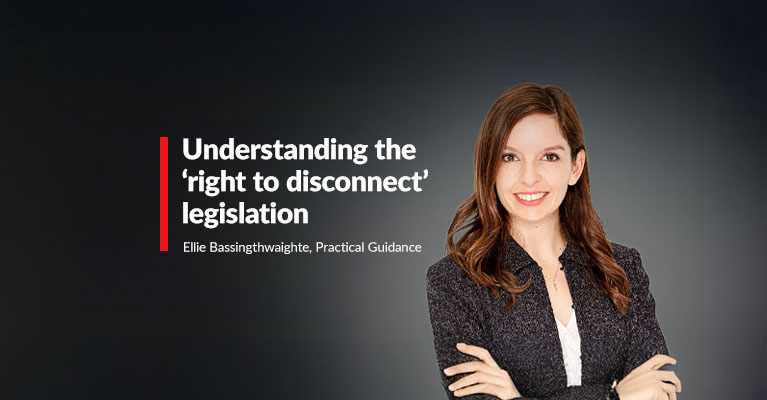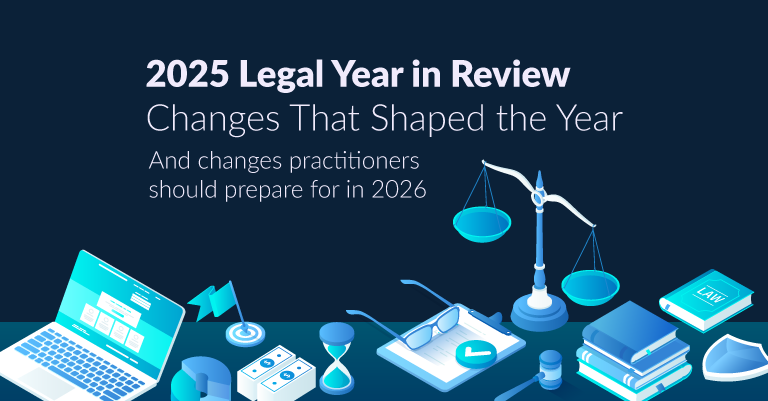Introduction Artificial intelligence is reshaping the ways organisations manage the entire employment lifecycle, from screening resumes and identifying potential candidates to supporting employee development...
Authored by Jennifer Raphael , Senior Legal Writer, Construction. 2026 is shaping up to be a pivotal year for construction law in Australia. Across multiple jurisdictions, governments are moving from...
Across Australia and New Zealand, legal professionals are embracing a new era of AI-powered transformation. At the 2025 LexisNexis Legal AI Showcase , hundreds of attendees tuned in to see how Lexis...
Authored by Seeta Bodke , Head of Product - Pacific, LexisNexis® Legal & Professional At LexisNexis, our mission is to advance the rule of law through responsible innovation. The launch of Protégé General...
As 2025 draws to a close, Australia’s legal landscape reflects another year of reform focused on accountability, fairness, and technological adaptation. From mandatory merger notifications and franchising...

Ellie Bassingthwaighte, Senior Legal Writer- Practical Guidance Employment
Introduction of the Right to Disconnect
Starting 26 August 2024, Australian employees will gain a new 'right to disconnect' following significant amendments to the Fair Work Act 2009 (Cth) (FW Act). This new legislation aims to establish clear boundaries around out-of-hours work communication. For small business employers (as defined in section 23 of the FW Act) who were in business on this date, the right to disconnect will come into effect a year later, on 26 August 2025.
What is the Right to Disconnect?
The 'right to disconnect' legislation is designed to regulate and set limits on out-of-hours communication between employers and employees. Rather than banning all forms of after-hours contact, the law focuses on creating reasonable boundaries to protect employees' personal time. This reflects a growing recognition of the need for a balanced work-life integration, particularly in an era where modern communication technologies often blur the lines between professional and personal life.
Key Aspects of the Legislation
-
Employee Rights:
Employees now have the right to refuse to monitor, read, or respond to work-related communications outside their regular working hours, provided their refusal is not deemed unreasonable. -
Reasonableness Criteria:
The assessment of whether an employee’s refusal is reasonable considers factors such as:- The nature of the contact.
- The level of disruption to the employee.
- The employee's role and responsibilities.
- Their personal circumstances.
- Any legal requirements for contact.
-
Dispute Resolution:
If disputes arise regarding the right to disconnect, they can be brought before the Fair Work Commission (FWC). The FWC can make orders to prevent employers from taking disciplinary action against employees for reasonable refusals or, conversely, determine if an employee’s refusal is unreasonable. The FWC is mandated to handle such applications promptly, within 14 days.
Impact on Modern Awards
In conjunction with the FW Act amendments, the FWC has updated all modern awards to include a 'right to disconnect' term. The FWC Full Bench has described this term as “intentionally minimalist,” acknowledging that further adjustments may be necessary as more is understood about its impact on various industries and roles.
Notably, the award term excludes employees receiving a stand-by allowance and does not restrict employers from contacting employees in cases of emergency roster changes or recalls to work.
The FWC plans to publish detailed guidelines on the right to disconnect once it has addressed initial disputes and issues.
What Employers Need to Do
The new legislation not only aims to protect employees' personal time but also recognises the practical needs of certain roles and industries where out-of-hours contact may be necessary. To comply with the new law, employers should consider the following steps:
-
Review Current Practices:
Assess existing policies and practices related to out-of-hours communication. -
Develop New Policies:
Create or update policies to align with the right to disconnect legislation. -
Provide Training:
Educate managers and staff on the new regulations and the importance of maintaining a healthy work-life balance.
Conclusion
While the right to disconnect aims to protect employees from excessive intrusion into their personal time, it also acknowledges the practical realities of certain roles and industries where out-of-hours contact may be necessary. The law seeks to strike a balance between the needs of employers and the well-being of employees, recognising that a healthy work-life balance can contribute to increased productivity, job satisfaction, and overall employee well-being.
Employers may be required to review their practices and develop strategies to manage out-of-hours contact in compliance with the new law, including implementing policies and guidelines, and providing training to managers and staff.
Employment Law Practice Area Collection
LexisNexis provides extensive coverage of federal and state employment law across our many publications. Authored by leading experts in the field, these analytical works include commentary and analysis on employment, industrial and occupational health and safety law. The flagship title Workplace Law Fair Work contains extensive annotations to the Fair Work Act as well as commentary on workplace discrimination, paid parental leave, termination of employment, and much more. Practical Guidance Employment is a how-to solution for workplace law practitioners, human resources professionals and in-house counsel dealing with workplace law matters. It provides task-oriented guidance supported by on-point cases, legislation, checklists, precedents, time-saving tools, and white-label training materials, covering the dynamic employment law landscape. Learn more by visiting Legal Research.




